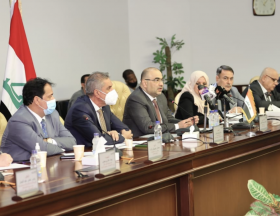A consortium of UN and development agencies, led by the International Labor Office (ILO) has published a diagnostic of the informal economy in Iraq.
Despite the lack of recent consolidated data, it emerges a strong growth of the Iraqi labor force between 2011 and 2017, which goes from 8 M to 10.5 M and an employment rate of the population of working age which remains among the weakest of the countries of the Middle East (49% in federal Iraq and 40% in Iraqi Kurdistan).
The unemployment rate is also high at 16% nationwide. The state remains the main provider of jobs with 39% of civil servants out of the country’s total jobs (without including employees of public / parastatal enterprises which represent 10 to 20% of jobs).
The private sector thus contributes only 40 to 50% of the country’s jobs (formal and informal private sector). Young people and women are particularly poorly integrated into the local labor market.
The youth unemployment rate is 36% and the employment rate of working-age women is only 20% (unemployment rate: 27%) (data – 2017-18).
The informal economy remains predominant in Iraq with 95% of the companies surveyed saying they are not officially registered.
As a result, private employment remains overwhelmingly informal with only 14% of employees declaring to have signed an employment contract, 37% having an oral agreement with the employer and 49% having no direct agreement with their employer. .
As a result, only 4% of private sector employees have employer-paid health insurance and 8% paid vacation (data – 2020)
To access the study: https://www.ilo.org/beirut/publications/WCMS_830086/lang–en/index.htm











Réagissez à cet article